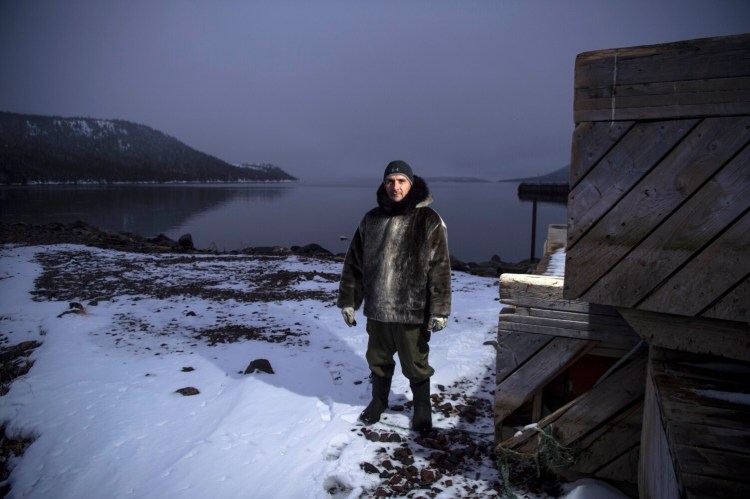The Morning Sentinel presents a special two-part report this weekend, “A Deadly Shade of Green,” that was produced in partnership with the Pulitzer Center on Crisis Reporting.


Whether to approve the $1 billion New England Clean Energy Connect project is just one of several major decisions Maine, and the rest of New England, will make in the coming years about the role Canadian hydropower will play in the renewable energy infrastructure of the future.
The controversial energy project by Central Maine Power, known as NECEC, received approval Wednesday from the state Land Use Planning Commission, which voted 5-2 to certify it as an accepted use in the areas it would be built. Other state and federal approvals remain.
Morning Sentinel photojournalist Michael G. Seamans and freelance journalist Matt Hongoltz-Hetling, a former Sentinel reporter, embarked on a four-month-long project to explore the behind-the-scenes impacts of energy that is marketed as clean and green.
They found deep concern over NECEC and other renewable energy projects in a pair of remote regions: from the isolated Inuit community of Rigolet, Labrador, in northeastern Canada; to the rugged wilderness of T5 R7 in Maine’s northwestern woods.
This two-part series takes an intimate look at the lives of people in these areas and how they are grappling with fears that the local environment, food supply and way of life they know will face deadly harm resulting from these energy expansions. The stories are told through exclusive reporting, with stunning photo galleries and videos as well.
Part 1 of the series, based in Rigolet, will publish in print and online on Sunday; and Part 2, based in Maine’s North Woods, will publish Monday. The online stories are premium content and will be available only to digital and print subscribers.
See the below video for a look at Part 1.
Send questions/comments to the editors.



Success. Please wait for the page to reload. If the page does not reload within 5 seconds, please refresh the page.
Enter your email and password to access comments.
Hi, to comment on stories you must . This profile is in addition to your subscription and website login.
Already have a commenting profile? .
Invalid username/password.
Please check your email to confirm and complete your registration.
Only subscribers are eligible to post comments. Please subscribe or login first for digital access. Here’s why.
Use the form below to reset your password. When you've submitted your account email, we will send an email with a reset code.